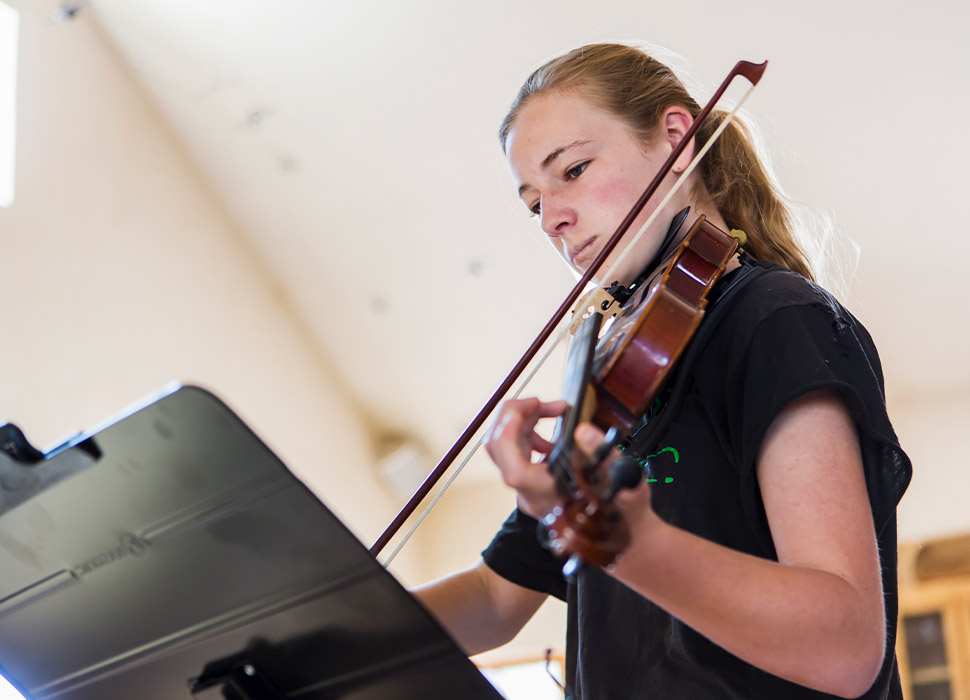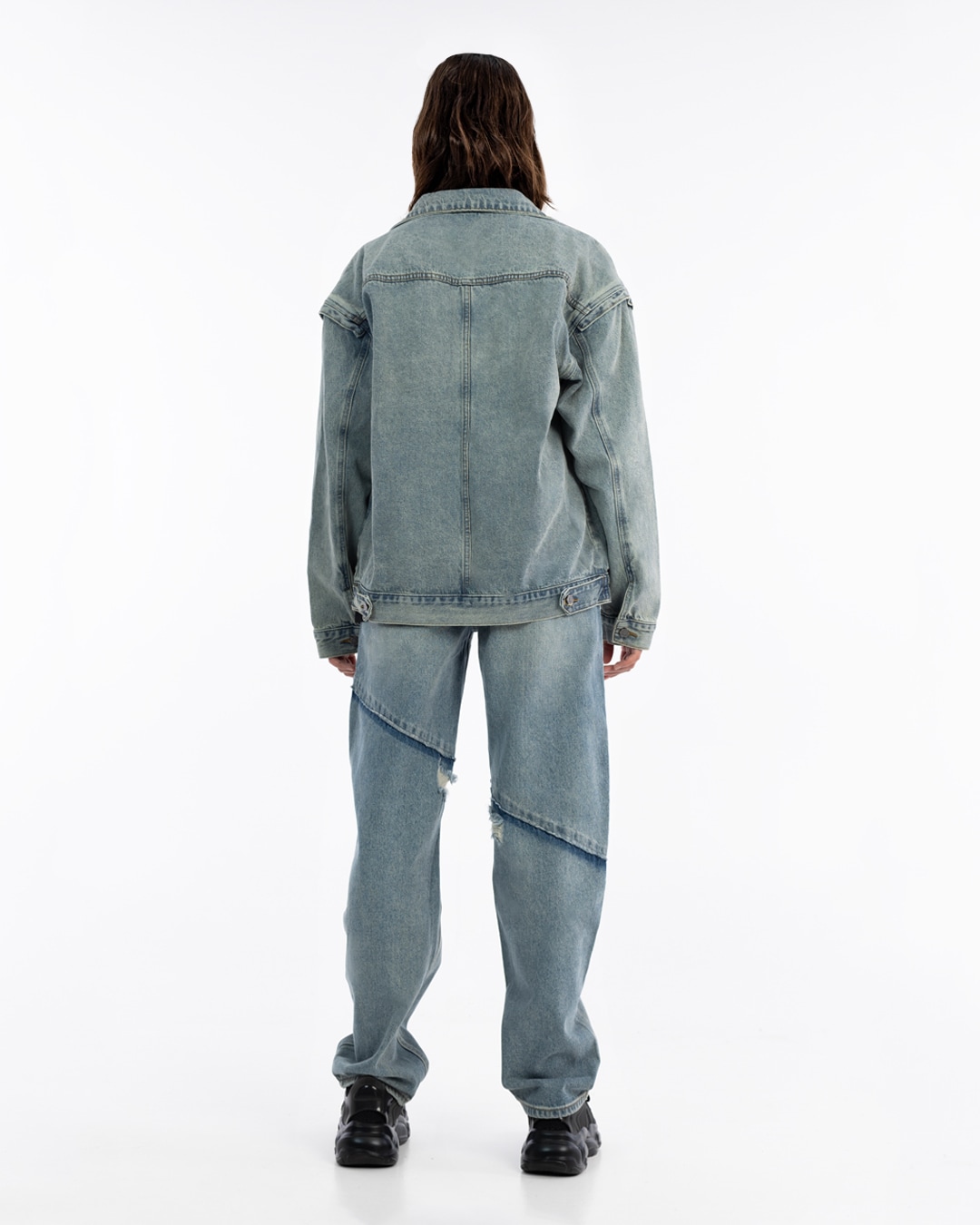A few weeks ago, I took my 17-year-old daughter, Ariana, an accomplished viola player, to the East Coast to audition at top-tier music conservatories, The auditions are, of course, important – where you go to college affects your whole life. At the first audition, waiting for her turn, I asked Ariana if she was nervous. “No, mommy, I’m so excited to play for them!” She was happy, like Cinderella going to the ball.
It felt to me like the end of a long road, and the start of a new one. When Ariana and her brother Zak were little, I suddenly became a single mother. I believed that I would never be able to send them to college without scholarships. So I groomed them in something that, as a symphonic violinist, I knew well: music. I started Zak on violin at 6 and Ariana at 5 (she switched to viola in her teens). During those hard times, I sometimes sacrificed paying my utilities bills in order to buy their instruments and pay for their lessons.
The first piece in Ariana’s first college audition was a dramatic Brahms sonata. I practically glued my ear to the door. It seemed to me that she was expressing all the life experiences that had brought her to this point; wonderful experiences like play dates and sleepovers with good friends, horseback riding, and playing in jazz and rock’n’roll bands. And there were echoes of difficult experiences, too, like her parents’ divorce, a cross-country move and teenage school troubles.
When she emerged from the room, I could tell from her face that she had nailed it. The teacher, who served as a judge, followed her out the door, congratulated me, and said that he’d love to teach her.
I’ve been thinking a lot about that experience, because so many people have asked me about the ‘tiger mother’ essay. You’ve probably read the article, by law professor Amy Chua, in the (January 8, 2011) Wall Street Journal, titled ‘Why Chinese Mothers are Superior.’ Chua outlines her approach to childrearing, which she calls the ‘tiger’ way, and compares it to the ‘Western’ way. Her children were never allowed sleepovers or play dates. They were required to be the top student in their classes, and to play only piano or the violin, for hours each day. Chua tells an anecdote about her 7-year-old daughter Lulu’s difficulty with a particular piano piece. Lulu gave up and left the piano. Her mother forced her back. “Punching, thrashing and kicking” ensued. Chua insulted and threatened her daughter, and didn’t let her go to the bathroom. After many hours – with no dinner – Lulu finally played the piece correctly.
My response: Chua could have achieved the same results with none of the negativity.
I know this because, not only am I now the parent of three highly musical children, but I also direct a music school with hundreds of young clients. We groom students from the beginning so that they can become good enough to get into Juilliard or any top-tier music program, if that’s the direction they choose. So in our ambition for our children, I’m a lot like Chua, who tried to get her daughter into Juilliard’s precollege program.
But, aside from admiring Juilliard, my experience helping children grow and to thrive in music to reach the highest levels couldn’t be more different from Chua’s.
ANGER IS EASY
In letting herself become angry at her children during practices, Chua takes the easy way out. The violin is the most difficult instrument a child can play. Seeing their children mess up, a parent’s anger can go from 0 to 100 in seconds. Sometimes I just want to jump inside my daughter’s little body and do it for her! Add to that the financial sacrifice – no wonder parents go ballistic.
I tell the parents that they’re not alone in these feelings, and offer them tools to reduce the frustration and help the child progress. My positive reward system includes plenty of praise and presents, from puffy stickers and ‘silly band’ bracelets, to cute Japanese erasers and plastic busts of great composers. We also offer dozens of ideas to help make practice fun, or at least tolerable.
SOLITARY CONFINEMENT VS. ‘PLAYING’ WITH FRIENDS
Chua puts a lot of emphasis on making her children practice for many hours – not just one or two hours, but 3 hours a day or more of solitary practice, just with mom. That would be 21 hours a week (plus whatever lessons they attend). I’m like Chua, in terms of my insistence that my children practice every day, and put in a lot of time each week. Some parents think I’m over the top. I added up the hours my 9-year-old daughter Jenna spends with music and her cello – it comes out to nearly 20 hours a week. But that’s not solo practice. Jenna is in two of my music school’s orchestras; and she plays in three quartets, with girls her age. On top of that, she has four cello lessons a week, one piano lesson, and one music theory class. I try to get her to practice solo for an additional – 1 hour a day. (All this isn’t nearly as expensive or time-consuming as it sounds because, of course, we own the music school which is Jenna’s second home.)
A more typical student in my program might take 1 or 2 lessons a week; participate in one of our string quartets once a week, and play with one or two of our orchestras weekly. He is also encouraged to practice 45-90 minutes a day, depending on level and age. That can average out 1 hours a day, around 12 hours a week, compared to Chua’s childrens’ 21 hours.
Putting time into practice in is important. In the elementary through high school years, it is true that the kids who practice for the most hours will have the most advanced technique, and will earn first chairs. But when they go out into the real world, and start auditioning for conservatories, high-level orchestras, and competitions, the winners will be the players who are not only technically proficient, but who are also able to interpret a piece of music in a way that is unique to them, with a high level of musicianship which can only come from varied life experiences – including non-musical experiences like play dates, sleepovers, and friendships.
Jenna is getting quality time, rather than just “doing time.” A significant percentage of her 21 hours, and the 12 hours of our more typical students, is spent in groups with her peers. It’s in group playing that students develop their musicality, and other critical skills like listening, leading, and rhythm. It’s also in group playing that the child develops a sense of belonging that pulls him or her upwards in music. They join a wonderful club with friendships, fun, snacks, trips to amusement park music festivals, medals, pins, trophies, and above all, travel! Membership inspires them to practice – reducing parents’ frustration.
Which brings up another reason that the ‘tiger’ approach is counterproductive. Being a professional musician is a social career. Succeeding is about making connections and friends. If there’s a good job, and there are two players to choose from, it’s the one who gets along with everybody who will get the job.
Chua appears to isolate her daughters. She describes as ‘Chinese’ her insistence that her child must be number one in almost any situation, school and music. My perspective: In music, as in life, aiming to be number one is a losing proposition. There will always be someone who plays better. Children must learn cooperation in order to succeed.
MISTAKES ARE A LAUGHING MATTER
After ten years of running a music school, we’ve learned that some parents should be separated from the student during lessons. I’ll be teaching a child how important it is to relax their upper body, and then the parent will chime in, or even poke the child – “And don’t forget to push your arm in!” – which pretty much puts us back to square one with the child’s tension. Overbearing parents inhibit student progress.
Chua demands perfection from her daughters. I tell my students (and their parents) that it’s O.K. to make mistakes. Something I say a lot in class and orchestra is, “I am so happy you played that wrong, now we can all learn!” My own children have made plenty of mistakes – big ones. Like the time Ariana forgot to tighten her bow before a fancy recital! Another time, she left the mute on her violin for the entire performance! You bet she’ll never do that again. We laughed then, and we still chuckle about it.
When my own children fail, when they don’t get first chair, I don’t take it personally. I know they’ll do better next time. They don’t need me to rub it in.
After years of dealing with hundreds of parents, it’s pretty clear to me that those who behave like Chua have tied their self-esteem too tightly to their children’s performance.
STICK WITH IT
Along with being ambitious, there is another area where Chua and I are similar: We’re both stubborn. If she’s a tiger mother, you can call me a lion mother. I agree with Chua’s attitude that, if someone wants their child to become a skillful musician, a parent must be very single-minded, stick with it, slog through the difficult parts, and never give up. But parents also must learn to separate from the child, and to grow their own lives emotionally and spiritually. And parents do not have to take away a child’s precious childhood.
[ad_2]





